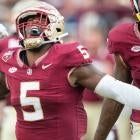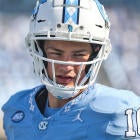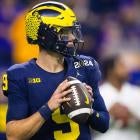The NFL typically goes on hiatus when mandatory minicamps end in the middle of June. Things don't start picking back up until the week following the fourth of July. Very little NFL business gets conducted during the lull.
Here's a look at some key outstanding offseason business matters, some of which should be completed prior to training camps opening later this month.
The franchise player negotiating deadline
Six players were designated as franchise players this year. Three of the six have already signed long-term deals. Edge rusher Dee Ford was the first. He received a five-year, $85 million contract as a part of his trade from the Chiefs to the 49ers for a 2020 second round pick in mid-March. The Cowboys made defensive end DeMarcus Lawrence the third member of the $20 million per year non-quarterback club in early April. He has a five-year, $105 million contract with $65 million in guarantees where $48 million was fully guaranteed at signing. Chiefs defensive end Frank Clark signed a five-year, $104 million contract with $62.305 million in guarantees ($43.805 million fully guaranteed at signing) in connection with his trade from the Seahawks shortly before the NFL draft was held in late April.
Texans edge rusher Jadeveon Clowney, 49ers kicker Robbie Gould and Falcons defensive tackle Grady Jarrett have until 4 p.m. EDT on July 15 to sign multi-year contracts. They must wait until the 2019 regular season ends to sign long term once the deadline passes.
A long-term deal isn't expected with Clowney, whose franchise tender is $15,967,200, according to the Houston Chronicle's Aaron Wilson. Gould reportedly tabled contract discussions with the 49ers in late April and wants to be traded, presumably to the Bears, who haven't had a reliable kicker since releasing him at roster cutdowns in 2016. He spent the first 11 years of his NFL career in Chicago. Gould's franchise tag amount is $4.971 million. Atlanta owner Arthur Blank proclaimed earlier in the offseason that Jarrett, who has already signed his $15.209 million franchise tender, would be a Falcon for life. Jarrett's agent, Todd France, represents the NFL's two highest paid interior defensive linemen, Aaron Donald ($22.5 million per year) and Fletcher Cox ($17.1 million per year). France likely views those deals he negotiated as being relevant to his Jarrett negotiations.
Running back Le'Veon Bell was the first franchise player to sit out a full season since 1998, last season. Unless Clowney or Gould are going to follow in Bell's footsteps, their respective franchise tenders will eventually be signed. Clowney is expected to sit out a significant portion of training camp before signing.
Tyreek Hill situation
Hill met with NFL investigators for eight hours in late June regarding allegations of child abuse against his three-year-old son. The Chiefs banned the wide receiver from offseason activities for the foreseeable future in April while local authorities conducted a criminal investigation into Hill's actions. The Johnson County (Kansas) District Attorney's Office announced last month that the investigation is no longer active.
Ideally, the NFL will make a determination whether Hill will face any discipline under the NFL's personal conduct policy before Chiefs veteran players report to training camp on July 26. Criminal charges are not necessary for Commissioner Roger Goodell to suspend someone under the personal conduct policy. According to Kansas City radio stations, the Chiefs are cautiously optimistic that Hill won't be suspended. A favorable outcome for Hill could lead to negotiations for a new deal, which were put on hold because of the allegations, resuming since he is in a contract year.
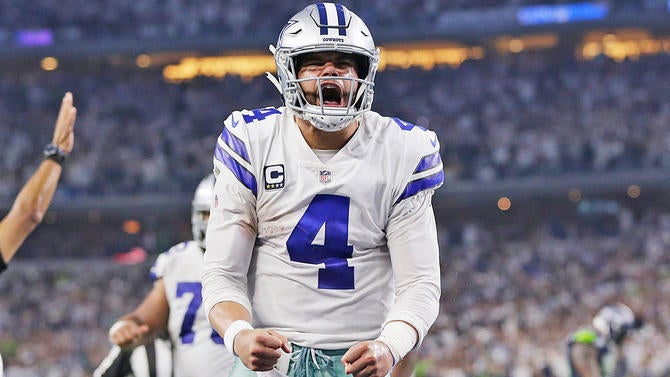
Veteran contract extensions
Every year, signings during the summer and leading up to the start of the regular season, change the complexion of the following year's free agency. The most anticipated veteran player signing may be Cowboys quarterback Dak Prescott, but the two sides are reportedly far apart in negotiations. Prescott seems destined to join the $30 million per year quarterback club, which currently has five members (Russell Wilson, Ben Roethlisberger, Aaron Rodgers, Carson Wentz and Matt Ryan) if he signs a long-term deal.
Tom Brady and the Patriots typically haven't had much trouble reaching an agreement on a new deal when he is in his contract year, like he is now. Things shouldn't be any different this time around, especially since Patriots owner Robert Kraft indicated he envisioned Brady, who turns 42 in August, as New England's quarterback for quite a while in the days leading up to Super Bowl LIII. One thing that can be counted on is Brady giving the Patriots some sort of hometown discount. That's something he's consistently done since 2013 when he first renegotiated the 2010 extension which made him the NFL's highest paid player.
Falcons wide receiver Julio Jones has faith that owner Arthur Blank is going to keep his word about giving him the new deal he was promised last summer. He said a couple of months ago he didn't care about becoming the NFL's highest paid wide receiver. Nonetheless, Jones, who has two years left on his contract totaling $21.026 million, could become the NFL's first $20-million per year wide receiver if Michael Thomas doesn't beat him to it.
Negotiations between the Saints and Thomas are ongoing. Thomas reportedly dropped his demands to $22 million per year recently while the Saints are in the $18 million per year neighborhood.
Linebacker Bobby Wagner is representing himself in negotiations with the Seahawks. He was pretty adamant that any new deal he signs must pay him more than C.J. Mosley's $17 million per year, which re-set a stagnant inside linebacker market, when asked about his contract during Seattle's offseason workouts.
First round signings
Only 11 2019 draft picks remain unsigned because there are very few negotiable items under the rookie wage scale, which was implemented in 2011. Just two of the first six picks, Cardinals quarterback Kyler Murray (first overall) and Raiders defensive end Clelin Ferrell (fourth overall) have signed.
Defensive end Nick Bosa, who was selected second overall by the 49ers, could be the most challenging signing. His older brother Joey, the third overall pick in 2016, had the longest contract dispute for an incoming NFL player under the rookie wage scale. He missed 31 days before signing his contract.
The dispute was largely over whether the deal should contain offsets and the payment schedule of his signing bonus. The concession the Chargers made to Bosa was a better payment schedule than they typically give to players with big signing bonuses.
An offset clause allows a team to reduce the guaranteed money owed to a player when he is released by the amount of his new deal with another team. The player receives his salary from the team that released him in addition to the full salary from his new contract with another club when there isn't an offset (also known as "double dipping"). An offset should only come into play in the latter years of a rookie deal if the player hasn't lived up to expectations.
The voiding of contract guarantees could be a bigger sticking point in the Bosa negotiations. The 49ers have some of the NFL's broadest language for guarantee voiding. Even quarterback Jimmy Garoppolo, who briefly became the league's highest paid player last offseason, has San Francisco's team friendly language.
This specific issue was responsible for linebacker Roquan Smith, 2018's eighth overall pick, missing the first two weeks of training camp last year because he and his agents (Brian Ayrault and Todd France) objected to language where the Bears had the right to void his guarantees for an ejection or suspension from a game for violating NFL playing rules. A compromise was reached on the number of games in a suspension necessary to trigger voiding. Ayrault and France also represent the Bosa brothers.
Agents have essentially lost the battle on offsets. Teams with early first round picks in 2013 were adamant that contracts contain offsets after largely conceding the issue the previous year. Nearly every team besides the Jaguars and the Rams require offsets with salary guarantees for draft picks, including those selected in the top ten. As a compromise, a lot of teams structure deals containing minimum base salaries in the final three years with the remainder of a player's salary in annual fully guaranteed third or fifth day of training camp roster bonuses. The contract edge rusher Josh Allen signed with the Jaguars as the seventh overall pick doesn't have offsets.
A quarterback has the best chance of extracting a concession on offsets than players at other positions although it wasn't the case with Murray. Mitchell Trubisky, the second overall pick in 2017, signed a deal with the Bears where his training camp roster bonuses in 2018 through 2020, which contain most of the money in the last three years of his contract, don't have offsets. All of the other Bears first round picks signed under the rookie wage scale have offsets.
It will be interesting to see whether sixth overall pick Daniel Jones can get treated by the Giants in a similar manner as Trubisky was by the Bears especially considering the player taken right after him, Allen, doesn't have offsets. Saquon Barkley, who was selected second overall last year by the Giants, signed a contract with offsets. Jets defensive tackle Quinnen Williams (third overall) and Buccaneers linebacker Devin White (fifth overall) are also unsigned.
Minicamp holdouts
Lions defensive tackle Damon Harrison, Chiefs defensive lineman Chris Jones, Jaguars defensive end Yannick Ngakoue, Lions cornerback Darius Slay and Redskins offensive tackle Trent Williams were willing to risk incurring a fine of $88,650 for missing last month's mandatory three-day minicamp with their respective teams because of contract unhappiness. Clowney and Gould didn't attend minicamps either. As franchise players with unsigned tenders, Clowney and Gould weren't subject to a fine. Unsigned players aren't withholding services they are contractually obligated to perform.
Any training camp holdout by Jones or Ngakoue shouldn't last too long. Both are entering the final years of their rookie contracts and have three years of service towards free agency (i.e. accrued seasons). An accrued season isn't earned when a player doesn't report to his team at least 30 days prior to the NFL's first regular season game. The reporting deadline this year is August 6.
Missing this August 6 deadline after a failed holdout where either of these two play out their rookie contracts would make them restricted free agents in 2020 rather than unrestricted. Under this scenario, the Chiefs and Jaguars would have the ability to give Jones and Ngakoue a restricted free-agent tender, which will be between $4.627 million and $4.848 million, where they would get a first round pick next year if signed to an offer sheet by another team that isn't matched. Getting the year of service isn't a concern for holdouts with four or more years of service since these players already have enough accrued seasons to qualify for unrestricted free agency.
The Williams situation has the potential to be the most acrimonious. In addition to reportedly wanting his contract addressed because of the left tackle market dramatically escalating since signing in 2015, Williams hasn't been happy about how the Redskins' medical staff handled a growth on his scalp that was surgically removed early in the offseason.
The penalties are more severe for a training camp absence. A team can fine a player a maximum of $40,000 for each day missed. Training camps typically run from 35 to 40 days. Missing all of camp would subject a player to approximately $1.5 million in fines. A team can also recover a portion of a player's signing bonus. 15 percent of the prorated amount of signing bonus can be recouped on the sixth day of a training camp holdout. It's one percent for each additional missed day with a maximum of 25 percent of the prorated amount during training camp. The recoupment increases when a holdout extends to the regular season.
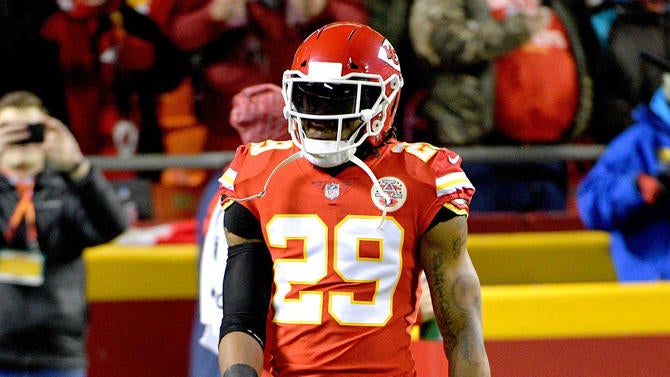
Veteran free agents
There are usually veteran player signings right before training camps open and during the preseason. For some of the veterans, a conscious decision to wait has been made because the free agent market hasn't been to their liking. A few will further delay signing in hopes of gaining some contractual leverage through a training camp or preseason injury. The most prominent veterans available include running back Jay Ajayi, safety Eric Berry, wide receiver Dez Bryant, wide receiver Michael Crabtree, tight end Antonio Gates, edge rusher Nick Perry and defensive lineman Muhammad Wilkerson.
















